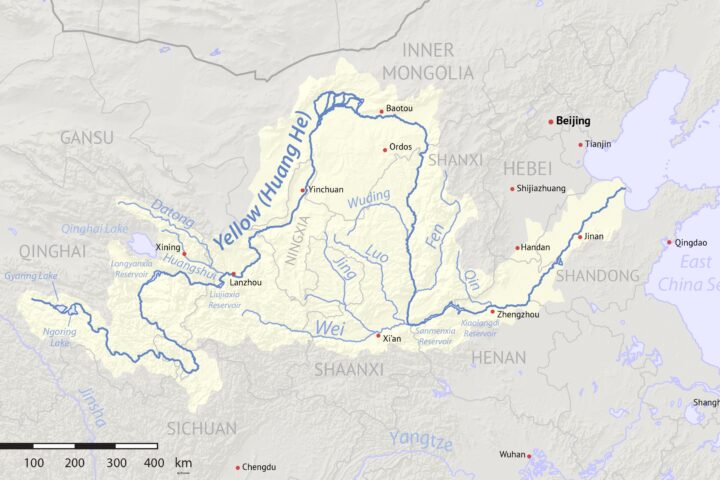Source: Wikimedia_Anarchist_protest_By Dominic Alves – March for the Alternative – Anarchists Black Block, CC BY 2.0
Anarcho-syndicalism is a political philosophy that proselytizes for a society based on free association and directly controlled by the workers in terms of its means of production. It is a form of anarchism that stresses the role of labor unions and industrial organization as major instruments of achieving an asocial and classless society.
Historical Context and Origin
As a doctrine, anarcho-syndicalism emerged at the end of the 19th century in response to increased industrialization and the ascendance of economic systems based on capitalism. It received influences from such thinkers as Pierre-Joseph Proudhon, Mikhail Bakunin, and Karl Marx. At the same time, however, anarchists and especially the anarcho-syndicalists rejected the authoritarian and hierarchical elements of Marxism, which therefore preferred organization that was much looser and more democratic.
Large anarcho-syndicalist organizations first appeared in Europe at the end of the 19th/beginning of the 20th century, such as the French Confédération Générale du Travail (CGT) and the Spanish Confederación Nacional del Trabajo (CNT). These became very important in developing a labor movement and thus the struggle for social justice in these countries.
Key Doctrines of Anarcho-Syndicalism
In the foundation of anarcho-syndicalism lie the following core ideas:
- Rejection of authority: Anarcho-syndicalists disallow every form of hierarchical authority, which includes the state, corporations, and religious institutions. They believe that such authority is inherently oppressive and incompatible with a free and just society.
- Anarcho-syndicalists wholeheartedly believe in direct workers’ control of the workplace and industries, independent from commanding inputs by either the capitalist owners or government bureaucrats. It is their belief that this will guarantee an economy that is more productive, efficient, and justly distributed.
- Federalism: The anarcho-syndicalists support the idea of a federalist society, organized through free associations of workers and communities on a completely decentralized basis. This would avoid centralization and ensure self-government at the local level.
- General strike: The general strike is one of the most effective weapons that anarcho-syndicalists believe workers can use to express their desires and thereby become a formidable force to take down the power structures that exist. A general strike they believe would shut down an entire economy and would compel the ruling class to sue for negotiations with workers.
The Role of Labour Unions

Anarcho-syndicalism is the form of anarchism in which the labor union is the prime functional unit of society. For a simpler meaning, anarcho-syndicalists do not see the labor unions as simply organs for bargaining with bosses; rather, these unions should be themselves the constructive organs of the new and revolutionary society to be created. In the opinion of anarcho-syndicalists, labor unions could develop skills, experience, and solidarity among workers so as to challenge existing structures of power by building up a new society on the lines of direct worker control.
Anarcho-syndicalism focuses on the creation of industrial unions, which organize the workers in a particular industry rather than within the company itself. These are seen as more effective confrontations with a corporation and promotion of workers’ interests.
General Strike as Means of Revolution
The general strike is, for the anarcho-syndicalists, the strong weapon to fight against social injustice. According to them, the general strike could paralyze the economy and thereby compel the ruling class to be at the negotiating table with the workers. They also argue that the general strike can help develop the solidarity and consciousness necessary to build a new society among workers.
Perhaps the most famous example in anarcho-syndicalist history, the Spanish Civil War was the result of general strikes against a government. In 1936, the loose net of anarcho-syndicalist unions declared a general strike against the government, where a revolutionary state was established. However, the Spanish Revolution ultimately fell at the hands of combined fascist forces and conservative elements of the Republican government.
Anarcho-Syndicalism and the Modern World
What happened was that, as a movement among industrial workers, after the decline in industrial labor and especially with a rise in globalization, it was hard for them to adjust to modern times. However, ideas of anarcho-syndicalism are still valid today, and several labor activists and activists of social justice still follow anarcho-syndicalism.
Anarcho-syndicalism perhaps has one of the most influential impacts on the anti-globalization movement. Anti-globalization activists often avow a more decentralized, democratic, and just economic system, a system based upon local control and worker self-management. Such ideas are in congruence with the core beliefs in anarcho-syndicalism. Anarcho-Syndicalism and the Modern World
The modern world has hit anarcho-syndicalism with its hardest blows in the decline of industrial labor, and especially globalization. The changes in the economy to a service-based economy and outsourcing jobs to countries where people have lower wages undercut the traditional pattern of industrial unions that was the backbone of the anarcho-syndicalist movement.
However, anarcho-syndicalism is very much alive in the conceptions of many people today. Anarcho-syndicalist ideas bring inspiration to scores of labor activists and social justice advocates. For example, the Occupy Wall Street movement, which began in the United States in 2011, borrowed elements of anarcho-syndicalism. The movement called for economic justice, democracy, and the undoing of corporate power-all at the core of anarcho-syndicalism.
Another powerful influence of anarcho-syndicalism is in the anti-globalization movement. Anti-globalization activists generally advocate a noncentralized, democratic, and just economy, ground-based and managed by workers. Such ideas are essentially the key points of anarcho-syndicalism.
Anarcho-Syndicalism and the Environment
Some of the environmental activists also featured anarcho-syndicalism. The proponents of anarcho-syndicalism declare that the capital system is not sustainable by nature and promotes devastation of Earth. They believe that the solution to the environmental crisis rests in rethinking a more decentrated, democratic, and ecologically conscious society.
Anarcho-syndicalists often have a vision for transition to a greener economy, based on renewable energy sources and sustainable practice. They also develop an argument concerning the community-based initiative towards environmental protection and the struggle for social justice.
Anarcho-Syndicalism and Technology
Technology has opened up immense opportunities but also thrown up many crucial challenges to anarcho-syndicalism. The reason being that technology can be used either to empower workers or facilitate decentralized organization. First, the very internet has made it easy to connect workers with one another and coordinate activities.
On the other hand, technology can also be used in order to exploit workers and consolidate power. For example, automation may lead to job losses, concentrating wealth in a few hands. According to the anarchists, anarcho-syndicalists believe that technology should be used for the benefit of the worker rather than exploiting them.
Anarcho-Syndicalism and the Future
The future of anarcho-syndicalism is uncertain. The problems facing the movement are immense, and there is little sense in predicting the ability of a movement that identifies itself with a class it sees as constantly in change. But at any rate, the ideas of anarcho-syndicalism are as alive as ever and of more inspiration.
Anarcho-syndicalism shows the vision of a society based on freedom, equality, and solidarity. It is a vision congruent with the values of a large number of people in most parts of the world. It is in the 21st century, with growing inequality, climate change, and an upsurge of authoritarianism, that the principles of anarcho-syndicalism might have the most to say about how to build a more just and sustainable future.
Conclusion
Anarcho-syndicalism is a fascinatingly complex political theory that has contributed immensely to both the labor movement and struggles for social justice. Though perhaps less famous than other political philosophies, it continues to inspire and influence many people throughout the world.
With inequality, climate change, and authoritarianism some of the challenges facing us in the 21st century, perhaps it is time to revisit what principles anarcho-syndicalism could contribute toward building a more just and sustainable future.
Sources:
















